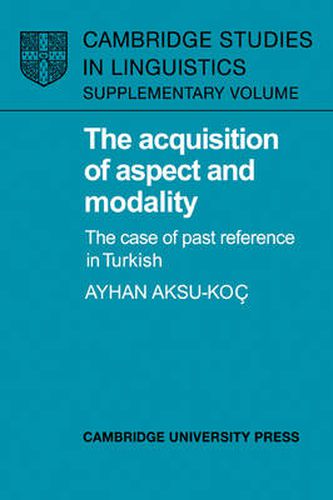Readings Newsletter
Become a Readings Member to make your shopping experience even easier.
Sign in or sign up for free!
You’re not far away from qualifying for FREE standard shipping within Australia
You’ve qualified for FREE standard shipping within Australia
The cart is loading…






Ayhan Aksu-Koc’s empirical research on Turkish children’s acquisition of the past tense forms the basis for this original and important contribution to the current debate among psycholinguistics on the interrelationship between language and cognitive development. Turkish, in its grammar, makes a clear distinction between direct and indirect experiencing, separating personal observation of processes from both inference and narrative. This distinction thus provides an ideal means by which linguistic and nonlinguistic conceptual development can be observed. Dr Aksu-Koc has exploited this to full advantage in her broadly based longitudinal and cross-sectional study, conducted across a wide age range. The data are meticulously analyzed, and the theoretical implications for a neo-Piagetian paradigm are carefully considered.
$9.00 standard shipping within Australia
FREE standard shipping within Australia for orders over $100.00
Express & International shipping calculated at checkout
Ayhan Aksu-Koc’s empirical research on Turkish children’s acquisition of the past tense forms the basis for this original and important contribution to the current debate among psycholinguistics on the interrelationship between language and cognitive development. Turkish, in its grammar, makes a clear distinction between direct and indirect experiencing, separating personal observation of processes from both inference and narrative. This distinction thus provides an ideal means by which linguistic and nonlinguistic conceptual development can be observed. Dr Aksu-Koc has exploited this to full advantage in her broadly based longitudinal and cross-sectional study, conducted across a wide age range. The data are meticulously analyzed, and the theoretical implications for a neo-Piagetian paradigm are carefully considered.